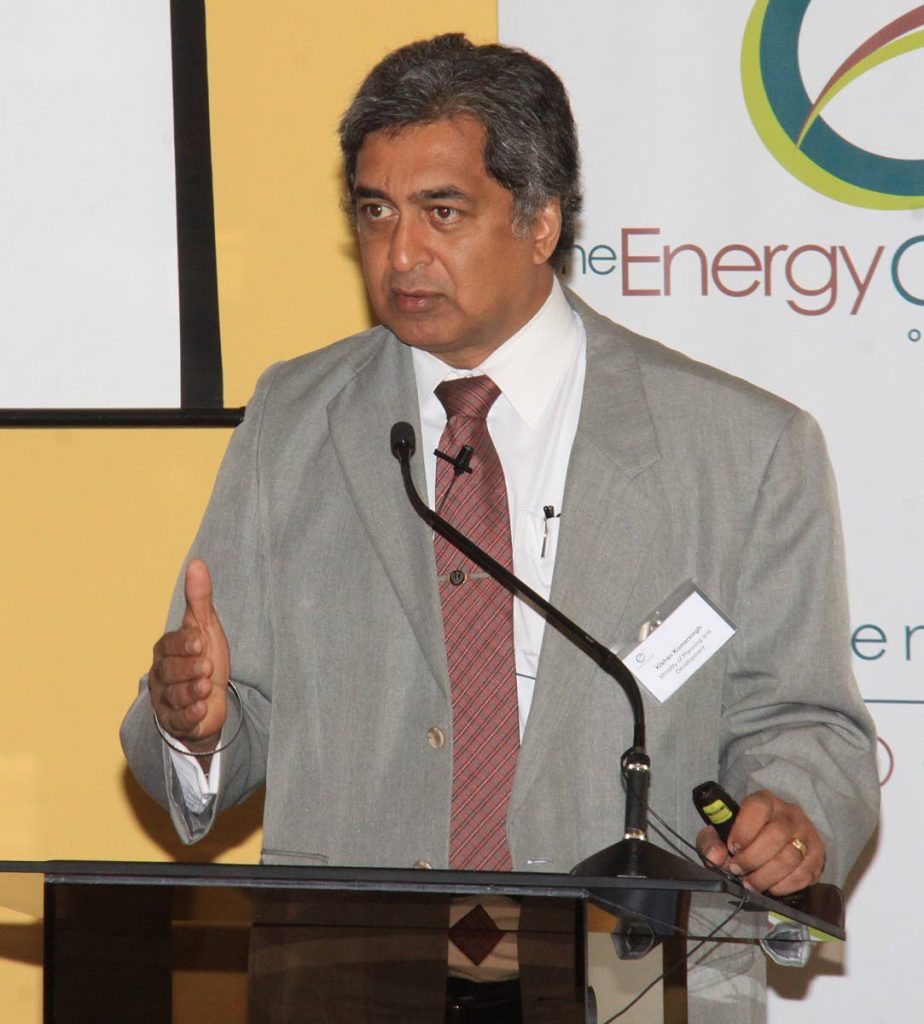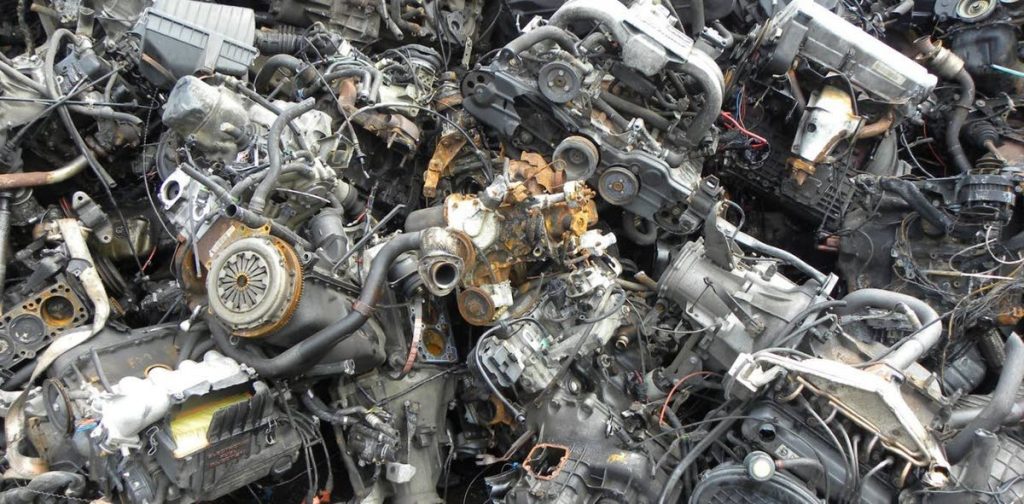Dump for old engines

If Trinidad and Tobago does not make larger strides to use more environmentally friendly vehicles, in a few decades it could become the world's dumping ground for old diesel and gas engines.
Kishan Kumarsingh, Head of the Multilateral Environmental Agreements Unit at the Ministry of Planning and Development, noted that in February 2018, when it ratified the Paris Agreement, TT committed itself to reduce its cumulative greenhouse gas emissions in the transport, power generation, and industrial sectors by 15 per cent by 2030.
In the transport sector, TT had already started by using CNG (compressed natural gas) buses for public transports, and providing incentives to import hybrid vehicles or convert internal combustion engines to CNG, and more. Still he said, “Natural gas is not the answer to emissions from the transportation sector. It should be viewed as transitionary to what should be sustainable transport.”
He noted that many countries are slowly replacing or had signalled their intention to replace fossil-fueled engines with electric vehicles. He said it means that in about 50 years the internal combustion engine would be a relic, replaced by electric engines with charging done by renewable energy. That means there will be absolutely no emissions from the power generation to charge the batteries, nor from the operation of the vehicles.
“That is where the world is heading. It might be instructive to take lessons from that because no major car manufacturer is going to produce cars for TT so the engines will have to come from the foreign-used market. They will require some place to put all of these engines and we could very well become a dumping ground for them in time to come if we do not, as soon as possible, also institute some policy direction in the same way to follow the world toward sustainable transport.”
Charting course to energy efficiency
In addition to fuel switching, the Government aims to increase energy efficiency, and the use of renewable energy to ten per cent by 2021 as part of its implementation plan to reduce greenhouse gas emissions.
In the power generation sector, Kumarsingh said there needs to be a two-pronged approach. Firstly, he said, the cheap cost of energy encourages people to wastage. People leave lights, air-condition units and other devices on when not in use because the resulting electricity bill would be relatively small.
“A change in energy efficiency consciousness would have to coincide in a short to medium-term change in the paradigm where the true cost of electricity would, at some point, be reflected in the consumption and therefore paying for the true cost would stimulate behavioural change.”
Secondly, he explained, because of the way electricity is generated in TT, there is always excess power on the national grid. Therefore, even if users increase efficiency or turn off all electricity-using machines, the emissions rising from the grid would have already gone into the atmosphere. Instead, the country would have to use technology to create power according to demand.
When it comes to the industrial sector, he said there are two components in its greenhouse gas profile – energy use and industrial processes. He said the plants can benefit from greater energy efficiency as well as renewable energy sources. Also, although production is usually a fixed process and there would be emissions, technology is available to either reduce those emissions or collect them to be used elsewhere.

Kumarsingh said another part of the Paris Agreement was for countries to work towards transitioning to a low-carbon economy which would provide opportunities to have economic growth without the associated increase in emissions. To allow for this “green growth,” he said an enabling environment would have to be created through policy and legislative changes.
He noted that TT’s economy is dependent on fossil fuel, a finite resource, but green growth would create jobs in green technology in the areas of manufacturing, renewable energy and its supporting technology, systems and development, service companies, and other areas.
He said all of it is important because there is still a huge gap between the collective NDCs (Nationally Determined Contribution – the reduction in cumulative emissions reductions pledged) of all countries, and what is necessary to limit the global temperature increase for the century to 1.5 degrees. More has to be done urgently.
“The Paris Agreement has built in an element of ambition which means parties would be required to submit NDCs at regular intervals, and each successive NDC must be an improvement on the previous one.
“The adverse effect on small island states could be detrimental, even existential as has been acknowledged, so the need for action is urgent. All action is necessary... So we can no longer say that we account for a small amount of emissions and therefore we don’t need to take any action.”
What can you do?
Kumarsingh noted that transport, power generation, and industrial sectors are not the only sectors that emit greenhouse gases. Deforestation, organic waste, use of chemicals with ozone-depleting substances, plastics and other materials made from petroleum such as styrofoam are also noteworthy.
While there may not necessarily be a link to greenhouse gas emissions at first glance, waste minimisation is key. Practising more sustainable levels of consumption would create a domino effect that would assist.
“If collectively, globally, there is a reduction and eventual phase out of the use of plastics then the demand for petroleum to make these products would, of course, decrease. So the emissions associated with maintaining that demand would also be reduced.”
He said overall there has been a general shift in the policy direction in TT with regard to single-use plastics and styrofoam, including incentives, as well as a ban on styrofoam. “Unfortunately, but maybe not necessarily so, to affect change in this society it requires a bit of both carrot and stick, sometimes more stick than carrot. But I think gradually, with public awareness and education, people, certainly the younger generations, are beginning to realise the value in sustainable consumption.”

Comments
"Dump for old engines"